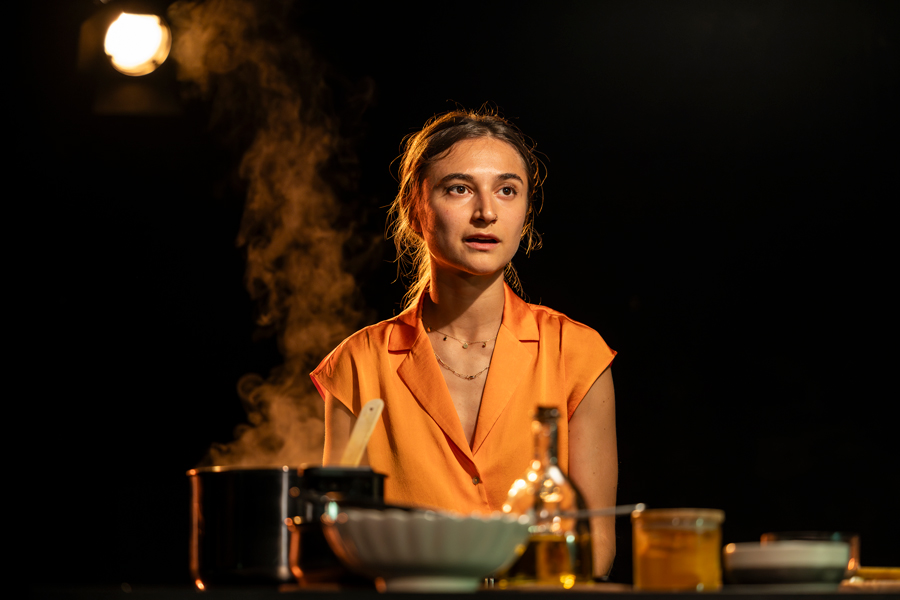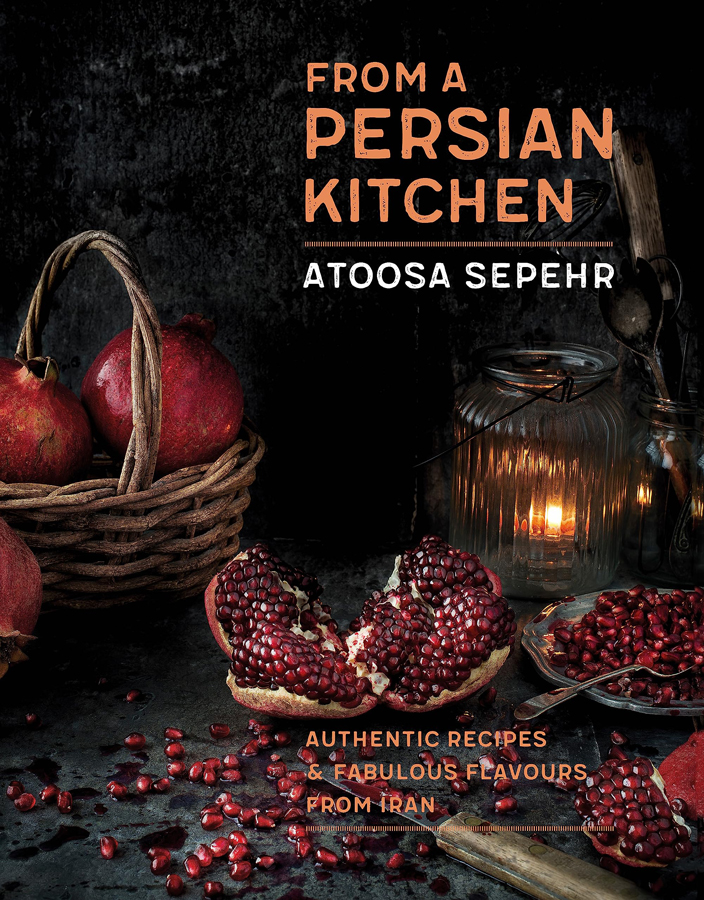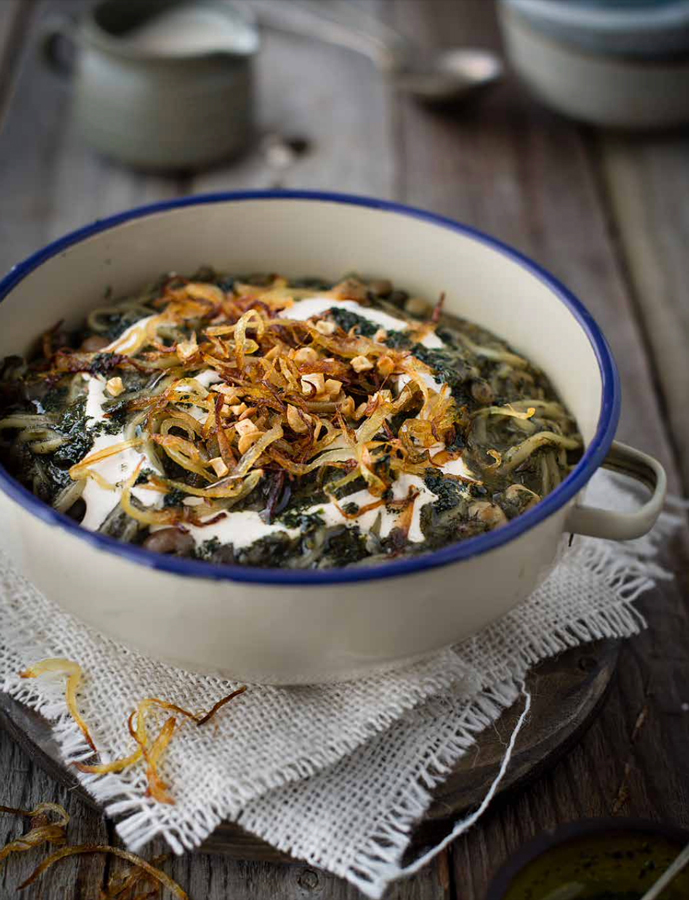Northern Ireland-based author Atoosa Sepehr talks about her new play inspired by the flavours of her native Iran …
Growing up in Iran, I never wanted to be seen as a woman who belonged in the kitchen. I wanted to be treated as an equal in a male-dominated society. So, I studied relentlessly and worked my way up, step by step, until I eventually built my own import-and-export company in the steel industry – a world almost entirely ruled by men. From the outside, everything looked perfect. I was a successful businesswoman, happily married, or so it seemed. Behind closed doors, I was trapped in an emotionally, and later, physically abusive relationship. In Iran, a man holds the right to divorce – not a woman – and could legally prevent me from leaving the country. I knew that if I wanted freedom, I would have to find my own way to escape.

Desperate, I reached out to a company that I worked with in London for a new position. I waited for my work permit to be approved before asking for a divorce one last time. As expected, his answer was no. I left him and went to my parents’ home in Esfahan, six hours from Tehran, hoping to reconnect with family and friends before leaving the country. On the day that I arrived, he phoned and threatened to ban me from leaving the country and I knew he meant it.
That night, I drove back to Tehran with my parents, praying that I could find a flight to London before it was too late. After countless obstacles and a touch of magic, I stepped into my new life. Leaving was only the beginning. Arriving alone in a new country, I had to navigate a new culture and rebuild my life from scratch. I held it together at work, but at home I was a mess. I missed my family, friends, country. That’s when I turned to something that I had always avoided: cooking. I started making Persian food, even though I barely knew how. Hours were spent on the phone with my grandmother, mother and aunts, learning recipes and perfecting them. Slowly, my kitchen filled with the aromas of saffron, herbs and slow-cooked stews – scents that made me feel at home again.

Food became my therapy: a bridge back to everything that I’d lost. Those very recipes later became my book, From A Persian Kitchen, which went on to inspire a play after creative producer David Luff read my story in The Guardian. My English Persian Kitchen played at Soho Theatre and the Edinburgh Fringe Festival – both completely sold out. I could hardly believe it.
The play is about creating a sense of community in a completely new world. It was written by playwright Hannah Khalil and performed by Isabella Nefar. What makes it so special is its immersive experience – at the end, the audience even gets to taste one of my favourite dishes, Ash-e Reshteh, which is cooked live during the performance. It’s a hearty go-to comfort food, a thick soup bursting with flavour including saffron, garlic, mint, coriander and parsley, traditionally cooked for Persian New Year. The noodles symbolise good fortune. These days, it’s hugely popular in Iran all year around.

For me, food didn’t end there. The place where I’d always distanced myself from – the kitchen – became where I found myself again. It became the foundation of my new life and career. I went back to college to study the science of food and became a nutritional therapist, later specialising in nutrigenomics — how food interacts with our genes. I now support clients with chronic conditions, and each time I see someone manage or overcome their symptoms, it feels profoundly rewarding.
For the past three years, I’ve lived in Belfast with my partner, who is Irish. I love Ireland and truly consider it my home. Since leaving Iran, I’ve never felt so welcomed anywhere else. I always felt a connection to this country as I’d visited for years before finally moving here permanently.
Need to know: My English Persian Kitchen is at the Pavilion Theatre in Dun Laoghaire, Co Dublin from October 21 to 22 and at the Lyric Theatre Belfast (presented by Belfast International Arts Festival) from October 24 to 25. @atoosasepher_nutrition
Atoosa’s Persian Noodle & Herb Soup (Ash-e Reshteh) Recipe
Serves 6
100g green lentils, rinsed
50g fresh coriander
50g fresh flat-leaf parsley leaves
50g fresh dill leaves
40g fresh mint leaves
30g fresh chives
100g fresh spinach leaves
80g spring onions
3 tbsp olive oil
2 large red onions, finely chopped
5 large garlic cloves, finely chopped
1 tsp ground turmeric
1/4 tsp freshly ground black pepper
60g chickpeas, soaked overnight, drained
60g pinto beans, soaked overnight, drained
2.25 litres vegetable stock
150g reshteh or udon noodle, broken into three equal pieces
150g kashk, plus extra for topping (or blend 150g sour cream with 150g feta cheese to a paste in a food processor)
Salt
For the toppings
3 onions for crispy fried onion
6 large garlic cloves for crispy fried garlic
3 tbsp dried mint for fried mint
Vegetable and olive oil for frying
Method
1. Soak the lentils in a bowl of water and set aside.
2. Finely chop all the herbs, spinach and spring onions, ideally in a food processor, and set aside.
3. Add the oil and onions to a large heavy-based pan. Fry on a medium heat for 12 minutes or until the onions are soft and golden brown. Add the garlic and stir for 3 minutes. Add the turmeric and pepper, then stir for 30 seconds. Add the drained chickpeas, pinto beans and stock to the onions, bringing to the boil. Turn the heat to the lowest setting, put the lid on and simmer for 2 1/4 hours.
4. Drain the lentils and add to the pan along with the chopped herbs, spinach and spring onions. Bring to the boil, then turn the heat to the lowest setting, put the lid on and simmer for 45 minutes. Meanwhile, make the toppings and set aside.
5. Add the noodles to the soup and stir well to ensure that they don’t stick together. (If the ash is too thick, add a little boiling water.) Bring to the boil, turn down the heat, put the lid on and simmer for 15 minutes, stirring from time to time. Taste and add salt if needed.
6. Stir the kashk into the soup, then ladle into a large serving bowl or individual bowls. Swirl some kashk on top (mix with a tablespoon of water if the kashk is too thick to swirl), followed by the fried mint (including the oil in which it was cooked), crispy fried onions and garlic toppings.
Note: For a quicker version of this soup, use a 400g tin of chickpeas and a 400g tin of pinto beans (rinsed and drained), adding them to the ash with the noodles. Use 2 litres of vegetable stock instead of 2.25 litres, then you won’t need to simmer for 2 1/4 hours.






